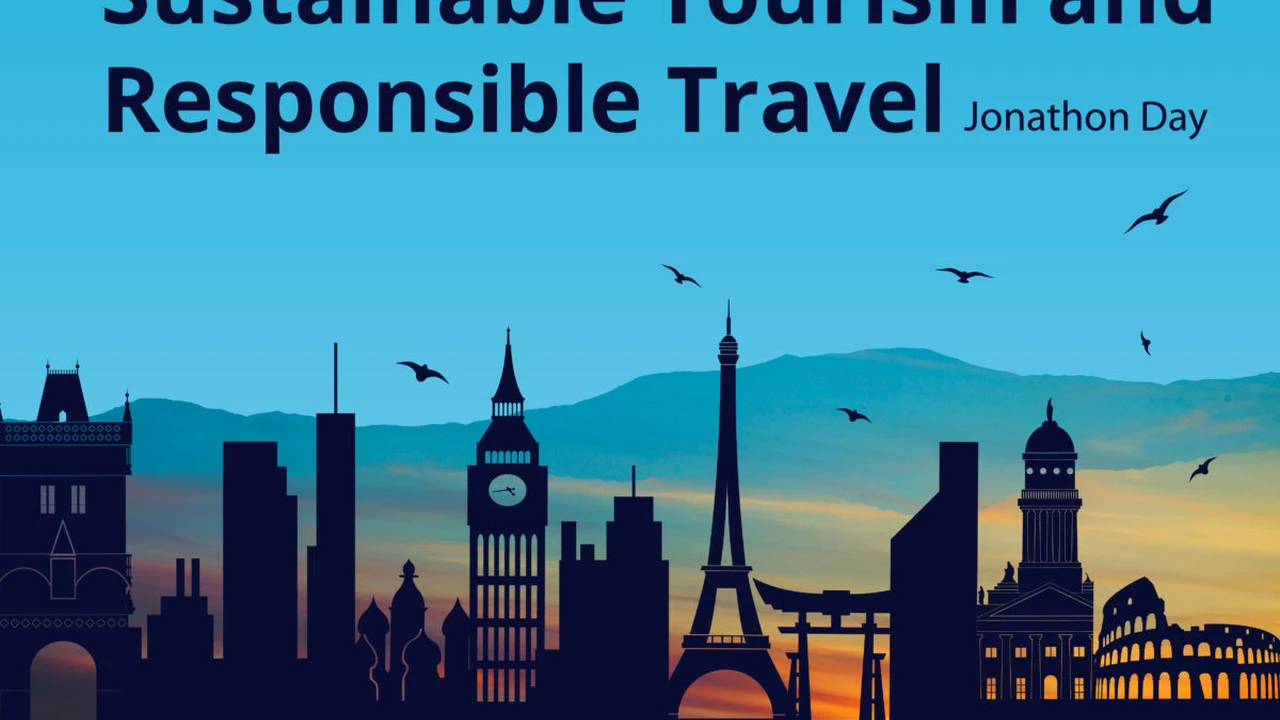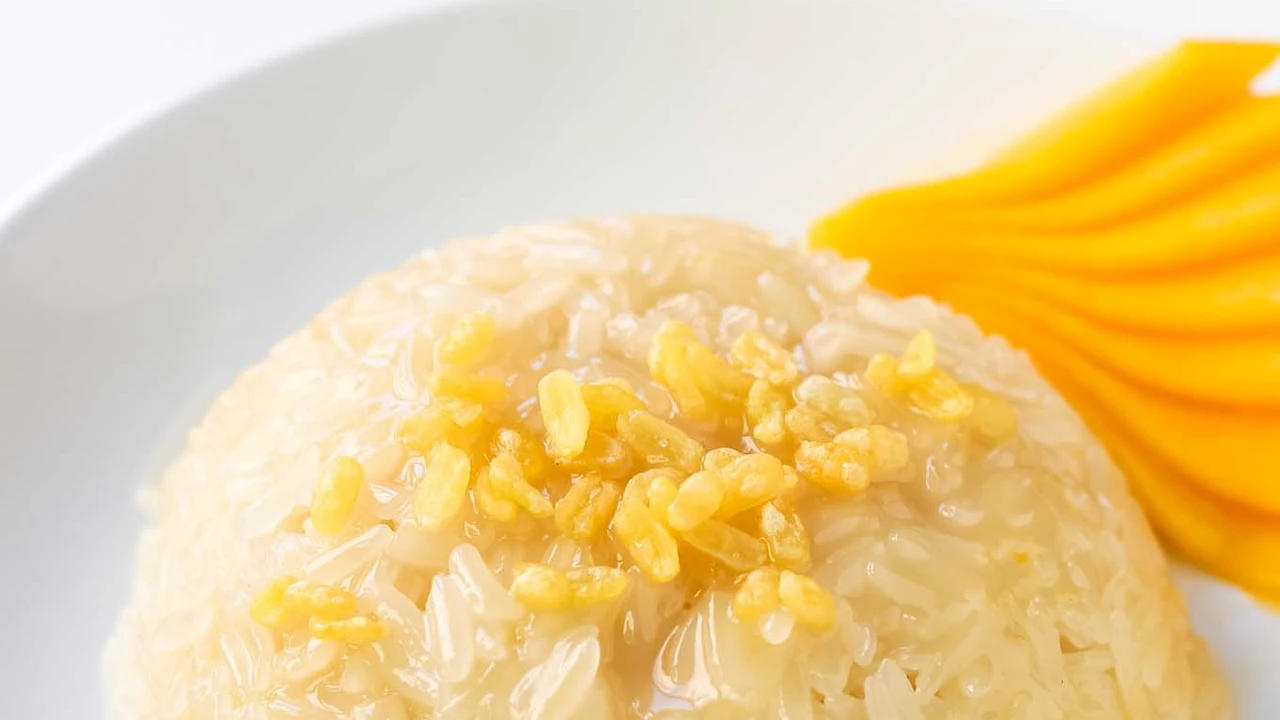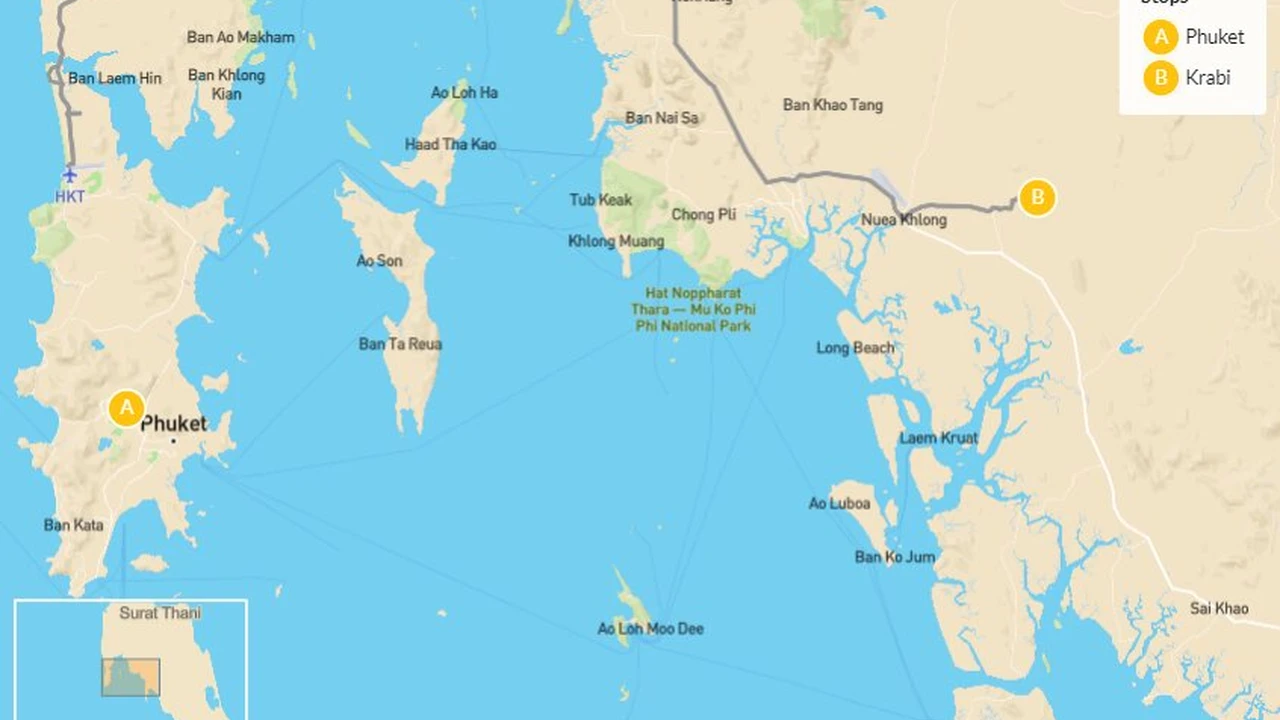Sustainable travel in Thailand: Responsible tourism practices

Introduction to Responsible Tourism in Thailand
Hey there, travel enthusiasts! Thailand, the land of smiles, stunning beaches, and vibrant culture, is a dream destination for many. But let's be real, tourism can have a significant impact on the environment and local communities. That's where responsible tourism comes in! It's all about traveling in a way that minimizes negative impacts and maximizes positive ones. Think supporting local businesses, respecting the environment, and learning about the local culture. Ready to dive in?
Understanding the Environmental Impact of Tourism
Okay, let's talk turkey. Tourism, while bringing in much-needed revenue, can also put a strain on Thailand's natural resources. Overcrowding at popular attractions, pollution from transportation, and unsustainable waste management practices are just a few of the challenges. Think about those pristine beaches littered with plastic bottles or coral reefs damaged by careless divers. It's not a pretty picture, right? That's why it's crucial to be mindful of our actions and make conscious choices to reduce our environmental footprint.
Supporting Local Communities and Businesses
One of the best ways to practice responsible tourism is to support local communities. Instead of staying at big chain hotels, consider guesthouses or homestays run by local families. Eat at local restaurants and street food stalls instead of tourist traps. Buy souvenirs from local artisans instead of mass-produced trinkets. Not only will you get a more authentic experience, but you'll also be directly contributing to the livelihoods of the people who call Thailand home. Plus, you'll probably discover some hidden gems along the way!
Sustainable Accommodation Options in Thailand
Finding sustainable accommodation in Thailand is easier than you might think! Look for hotels and guesthouses that have implemented eco-friendly practices, such as using renewable energy, conserving water, and reducing waste. Some accommodations even have their own organic gardens and offer farm-to-table dining experiences. Websites like Booking.com and Airbnb often have filters that allow you to search for eco-friendly properties. And don't be afraid to ask questions! Inquire about their sustainability initiatives before booking. Here are a few examples:
- The Tongsai Bay, Koh Samui: This luxury resort is committed to sustainable practices, including waste reduction, water conservation, and supporting local communities.
- Six Senses Yao Noi, Phang Nga Bay: Known for its stunning location and commitment to sustainability, this resort offers a range of eco-friendly initiatives and experiences.
- Baan Orapin Hotel, Chiang Mai: A charming boutique hotel that focuses on supporting local artisans and promoting sustainable tourism in Chiang Mai.
Eco-Friendly Transportation Choices
Getting around Thailand can be an adventure in itself! But it's important to consider the environmental impact of your transportation choices. Opt for public transportation whenever possible, such as buses, trains, or ferries. Rent a bicycle or scooter to explore local areas. If you need to take a taxi or tuk-tuk, try to carpool with other travelers. And consider offsetting your carbon emissions by donating to a reputable carbon offset program. Flying less is always a good option too; think about taking overnight trains between cities.
Responsible Wildlife Encounters
Thailand is home to a diverse range of wildlife, from elephants to monkeys to exotic birds. But it's crucial to ensure that your interactions with animals are ethical and responsible. Avoid riding elephants or visiting animal shows that exploit animals for entertainment. Instead, support ethical sanctuaries that rescue and rehabilitate animals. Observe wildlife from a safe distance and never feed or disturb them. Remember, it's our responsibility to protect Thailand's wildlife for future generations.
Respecting Local Culture and Customs
When traveling in Thailand, it's important to be respectful of local culture and customs. Dress modestly when visiting temples and religious sites. Remove your shoes before entering someone's home or a temple. Learn a few basic Thai phrases, such as "Sawasdee" (hello) and "Khop Khun" (thank you). Avoid public displays of affection and be mindful of your tone of voice. By showing respect for local culture, you'll not only have a more meaningful travel experience but also help to foster positive relationships with the local community.
Minimizing Waste and Reducing Plastic Use
Plastic pollution is a major problem in Thailand, as it is in many parts of the world. Make an effort to minimize your waste and reduce your plastic use. Bring your own reusable water bottle, shopping bag, and coffee cup. Refuse single-use plastics, such as straws and plastic bags. Choose products with minimal packaging and recycle whenever possible. Support businesses that are committed to reducing their environmental impact. Every little bit helps!
Supporting Ethical Souvenir Shopping
Souvenir shopping is a fun part of any trip, but it's important to be mindful of where your souvenirs come from. Avoid buying products made from endangered species or that exploit local communities. Instead, support local artisans and buy handicrafts that are made using sustainable materials. Look for fair trade products that ensure that artisans are paid a fair wage. And remember, the best souvenirs are often memories and experiences, not material possessions.
Responsible Diving and Snorkeling Practices
Thailand boasts some of the world's most stunning coral reefs, making it a popular destination for diving and snorkeling. But it's crucial to practice responsible diving and snorkeling to protect these delicate ecosystems. Avoid touching or standing on coral. Use reef-safe sunscreen to prevent damage to coral reefs. Don't feed the fish or disturb marine life. And choose dive operators that are committed to sustainable practices.
Volunteering Responsibly in Thailand
Volunteering can be a rewarding way to give back to the community while traveling. But it's important to choose your volunteer projects carefully and ensure that they are ethical and responsible. Avoid volunteering at orphanages or animal sanctuaries that may exploit vulnerable populations. Instead, support projects that address real community needs and empower local people. Do your research and choose organizations that are transparent and accountable.
Promoting Responsible Tourism Online
We all have a role to play in promoting responsible tourism. Share your experiences and tips on social media. Write reviews of sustainable accommodations and tour operators. Encourage your friends and family to travel responsibly. By using our voices and platforms, we can help to raise awareness and inspire others to make a positive impact.
The Benefits of Responsible Tourism
Responsible tourism is not just about minimizing negative impacts; it's also about maximizing positive ones. It can help to preserve Thailand's natural resources, support local communities, and promote cultural understanding. It can also lead to more authentic and meaningful travel experiences. By choosing to travel responsibly, you're not just benefiting the environment and local communities; you're also enriching your own life.
Specific Product Recommendations for Sustainable Travel in Thailand
Alright, let's get down to some specific gear recommendations that can help you travel more sustainably in Thailand. Remember, the goal is to reduce waste, support ethical brands, and minimize your impact.
Reusable Water Bottles: Staying Hydrated Responsibly
Thailand can get HOT. Staying hydrated is key, and ditching single-use plastic bottles is a must. Let's look at a few options:
- Hydro Flask: A classic for a reason. Durable, insulated (keeps drinks cold for hours!), and comes in a variety of sizes and colors. Great for hikes and long days exploring. Price: $30-50
- Nalgene: Another durable and BPA-free option. Lighter than Hydro Flask but not insulated. Perfect for everyday use and easy to clean. Price: $10-20
- Collapsible Water Bottle (e.g., Nomader): Super convenient for travel as it folds up when empty, saving space in your bag. Made from durable, BPA-free silicone. Price: $20-30
Usage Scenarios: Carry your reusable bottle everywhere! Refill it at your hotel, restaurants (ask nicely!), or water refill stations. Many airports now have water bottle filling stations too. Avoid buying bottled water whenever possible.
Comparison: Hydro Flask is the best for keeping drinks cold, but it's also the heaviest and most expensive. Nalgene is a good all-around option, lightweight and durable. Collapsible bottles are the most convenient for travel but may not be as durable as the other two.
Reef-Safe Sunscreen: Protecting Coral Reefs
Traditional sunscreens contain chemicals like oxybenzone and octinoxate that are harmful to coral reefs. Switching to reef-safe sunscreen is essential when swimming or snorkeling.
- Thinksport SPF 50: Broad spectrum protection, mineral-based (zinc oxide), and reef-safe. Water resistant and doesn't feel greasy. Price: $15-20
- Badger Balm SPF 30: Another mineral-based option with simple, natural ingredients. Very water resistant but can be a bit thick to apply. Price: $15-20
- Raw Elements Tinted Moisturizer SPF 30: Mineral-based, reef-safe, and provides a slight tint for a natural look. Price: $20-25
Usage Scenarios: Apply liberally before sun exposure, especially before swimming or snorkeling. Reapply every two hours or after swimming. Even if you're not swimming, reef-safe sunscreen is a good choice to protect your skin and the environment.
Comparison: Thinksport is a good all-around option, easy to apply and water resistant. Badger Balm is very water resistant but can be a bit thick. Raw Elements is a good choice if you want a tinted moisturizer with sunscreen.
Bamboo Toothbrushes: Ditching Plastic in the Bathroom
Plastic toothbrushes end up in landfills for hundreds of years. Switching to a bamboo toothbrush is a simple way to reduce your plastic waste.
- Brush with Bamboo: Made from sustainably harvested bamboo and has soft, BPA-free bristles. Price: $5-10
- WooBamboo!: Another popular bamboo toothbrush brand with a variety of bristle options. Price: $5-10
Usage Scenarios: Use just like a regular toothbrush! Replace every 2-3 months. When you're done with it, you can compost the bamboo handle (remove the bristles first).
Comparison: Both Brush with Bamboo and WooBamboo! are good options. Look for one with soft bristles to protect your gums.
Reusable Shopping Bags: Saying No to Plastic Bags
Plastic bags are a major source of pollution in Thailand. Bring your own reusable shopping bag and say no to plastic bags at the market and stores.
- ChicoBag: Lightweight, folds up small, and can hold a lot of weight. Price: $10-15
- Baggu: Stylish and durable reusable bag that comes in a variety of colors and patterns. Price: $12-18
Usage Scenarios: Keep a reusable shopping bag in your backpack or purse so you always have it on hand when you go shopping. Use it at the market, grocery store, or souvenir shops.
Comparison: ChicoBag is the most lightweight and folds up the smallest. Baggu is more stylish and durable.
Solid Shampoo and Conditioner Bars: Reducing Plastic Bottles
Shampoo and conditioner bottles are another source of plastic waste. Switching to solid shampoo and conditioner bars is a great way to reduce your plastic consumption and save space in your luggage.
- Lush Shampoo Bars: A wide variety of shampoo bars for different hair types. They smell amazing and last a long time. Price: $10-15
- Ethique Shampoo and Conditioner Bars: Another popular brand with a range of bars for different hair types. They are plastic-free and cruelty-free. Price: $15-20
Usage Scenarios: Wet your hair and the bar, then rub the bar directly on your hair to create lather. Rinse thoroughly. Store the bar in a dry place after use.
Comparison: Lush has a wider variety of scents and formulas. Ethique is a good choice if you're looking for plastic-free and cruelty-free options.
Bamboo Cutlery Set: Eating Sustainably on the Go
When eating street food, you're often given disposable plastic cutlery. Bring your own bamboo cutlery set to avoid using plastic.
- To-Go Ware Bamboo Utensil Set: Includes a fork, spoon, knife, and chopsticks in a carrying case. Price: $15-20
Usage Scenarios: Keep your bamboo cutlery set in your backpack or purse. Use it when eating street food or at restaurants that use disposable cutlery.
Other Useful Items
* Reusable food wraps (beeswax wraps): Reduce plastic wrap usage. * Menstrual cup or reusable pads: Sustainable and eco-friendly alternatives. * Water filter bottle: For safe drinking water from any source.By making these small changes, you can significantly reduce your environmental impact and travel more sustainably in Thailand. Remember, every little bit helps!
:max_bytes(150000):strip_icc()/277019-baked-pork-chops-with-cream-of-mushroom-soup-DDMFS-beauty-4x3-BG-7505-5762b731cf30447d9cbbbbbf387beafa.jpg)





